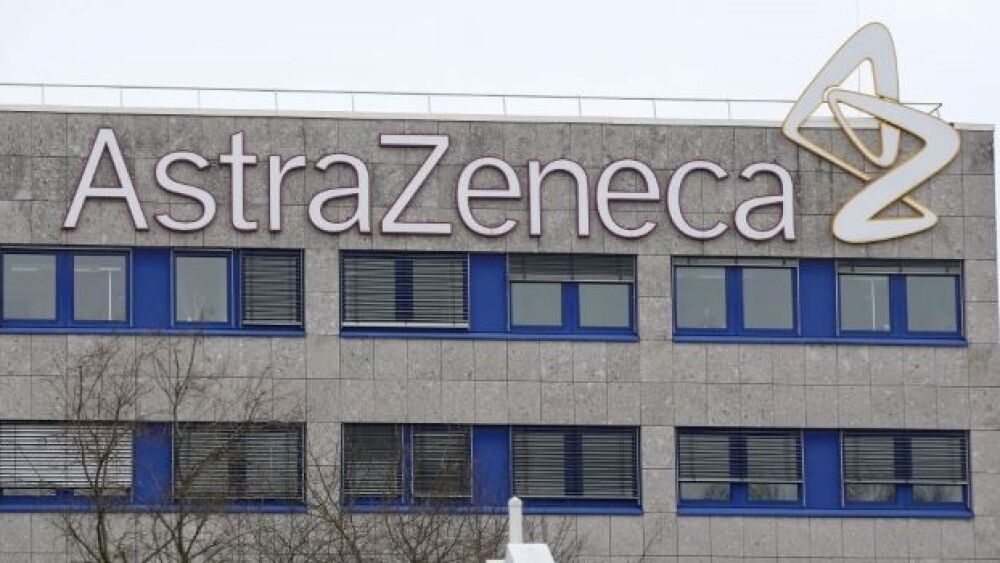This is after the company shared positive results from its Phase III trial on Imfinzi, increasing the chances for survival in BTC patients when combined with standard-of-care chemotherapy regimens.
Bodo Marks/picture alliance via Getty Images
AstraZeneca may have created the first treatment that can significantly boost the overall survival (OS) rate in patients diagnosed with advanced biliary tract cancer (BTC).
This is after the company today shared positive results from its TOPAZ-1 Phase III trial on Imfinzi (durvalumab) in increasing the chances for survival in BTC patients when it is combined with standard-of-care chemotherapy regimens. The trial evaluated outcomes in 685 patients diagnosed with unresectable advanced or metastatic BTC, including extra- and intrahepatic cholangiocarcinoma and gallbladder cancer (excluding ampullary carcinoma).
In the randomized, double-blind, placebo-controlled study, the researchers compared adding Imfinzi to chemotherapy versus chemotherapy alone. The study covered participants in over 145 centers in 17 countries, with the primary endpoint of overall survival and secondary endpoints of safety, progression-free survival, and objective response rate.
BTC is a group of aggressive cancers that happen in the gallbladder and bile ducts. Around 210,000 people are diagnosed worldwide, with patients having a poor prognosis and 5% to 15% only lasting five years.
Imfinzi works by binding to the PD-L1 protein and then blocking its interaction with the CD80 and PD-1 proteins. This counters the tumor’s immune-evading actions and disinhibits immune responses. To date, Imfinzi is the only approved immunotherapy for addressing unresectable, stage III non-small cell lung cancer (NSCLC) in patients who have not yet progressed to receiving chemoradiation. It is already approved for patients with advanced bladder cancer who have received some other form of treatment in several countries.
“Patients with advanced biliary tract cancer are in dire need of new treatments as progress in the 1st-line setting has remained largely stagnant for more than 10 years. TOPAZ-1 is the first Phase III trial to show that adding an immunotherapy to standard chemotherapy delivers a meaningful overall survival benefit for patients in this setting. Today’s exciting results are a major step forward in treating this disease and represent new hope for our patients,” said Do-Youn, M.D., Ph.D., the principal investigator in the TOPAZ-1 Phase III study, in a statement.
Aside from the mentioned indications, Imfinzi is being evaluated either as a single or combination treatment for liver cancer, esophageal cancer, cervical cancer, endometrial cancer, ovarian cancer, gastric and gastroesophageal cancer, and other types of solid tumors.
AstraZeneca has a broad development program to discover treatments for GI cancers across varying stages of the disease. Just this month, the company announced that its HIMALAYA Phase III clinical trial for first-line unresectable liver cancer met its primary endpoint of overall survival using the STRIDE regimen. STRIDE consists of a single dose of tremelimumab and Imfinzi every four weeks.





